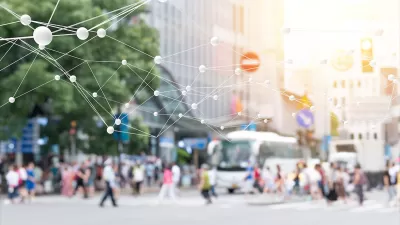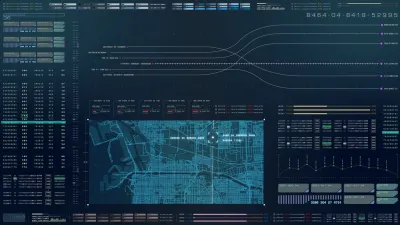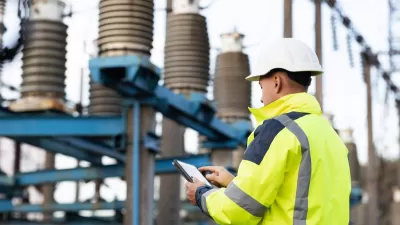Adie Tomer, of the Brookings Institution, writes about the role of artificial intelligence in the new digital age transforming cities.

The new industrial age of the digital era "represents an entirely new platform on top of which many everyday activities operate," according to a brief by Adie Tomer. One of the most important of the new developments of the new digital capabilities of cities is artificial intelligence (AI).
According to Tomer, there is a lot of interest and mystery surrounding AI, including just how AI will fit into the built environment. "Even though AI is still in its infant stages, we already encounter it on a daily basis," explains Tomer. "When your video conference shifts the microphone to pick up the speaker’s voice, when your smartphone automatically reroutes you around traffic, when your thermostat automatically lowers the air conditioning on a cool day—that’s all AI in action."
The bulk of Tomer's article discusses the potential for AI to address and mitigate some of the most pressing challenges facing cities, like climate change and urban resilience, growth and attraction of "tradable" industries, rising inequality, and more.
According to Tomer, there's no need to wait for AI to arrive in cities—it's already built into many day-to-day functions urban residents take for granted (the use of machine learning to better predict future bus arrivals for the mobile app Transit, for instance). But:
Continued experimentation with pilot AI projects and complementary policies are essential to build digital cities that benefit all people. But to deliver such shared prosperity, AI is only a secondary intervention. The first step is the same as it always was, no matter the technological era: Local leadership, from civic groups to elected officials to the business community, must collaborate to codify the shared challenges cities want technology to address. It’s only with a common sense of purpose that cities can tap AI’s full promise.
FULL STORY: Artificial intelligence in America’s digital city

Alabama: Trump Terminates Settlements for Black Communities Harmed By Raw Sewage
Trump deemed the landmark civil rights agreement “illegal DEI and environmental justice policy.”

Planetizen Federal Action Tracker
A weekly monitor of how Trump’s orders and actions are impacting planners and planning in America.

The 120 Year Old Tiny Home Villages That Sheltered San Francisco’s Earthquake Refugees
More than a century ago, San Francisco mobilized to house thousands of residents displaced by the 1906 earthquake. Could their strategy offer a model for the present?

Ken Jennings Launches Transit Web Series
The Jeopardy champ wants you to ride public transit.

BLM To Rescind Public Lands Rule
The change will downgrade conservation, once again putting federal land at risk for mining and other extractive uses.

Indy Neighborhood Group Builds Temporary Multi-Use Path
Community members, aided in part by funding from the city, repurposed a vehicle lane to create a protected bike and pedestrian path for the summer season.
Urban Design for Planners 1: Software Tools
This six-course series explores essential urban design concepts using open source software and equips planners with the tools they need to participate fully in the urban design process.
Planning for Universal Design
Learn the tools for implementing Universal Design in planning regulations.
Clanton & Associates, Inc.
Jessamine County Fiscal Court
Institute for Housing and Urban Development Studies (IHS)
City of Grandview
Harvard GSD Executive Education
Toledo-Lucas County Plan Commissions
Salt Lake City
NYU Wagner Graduate School of Public Service





























